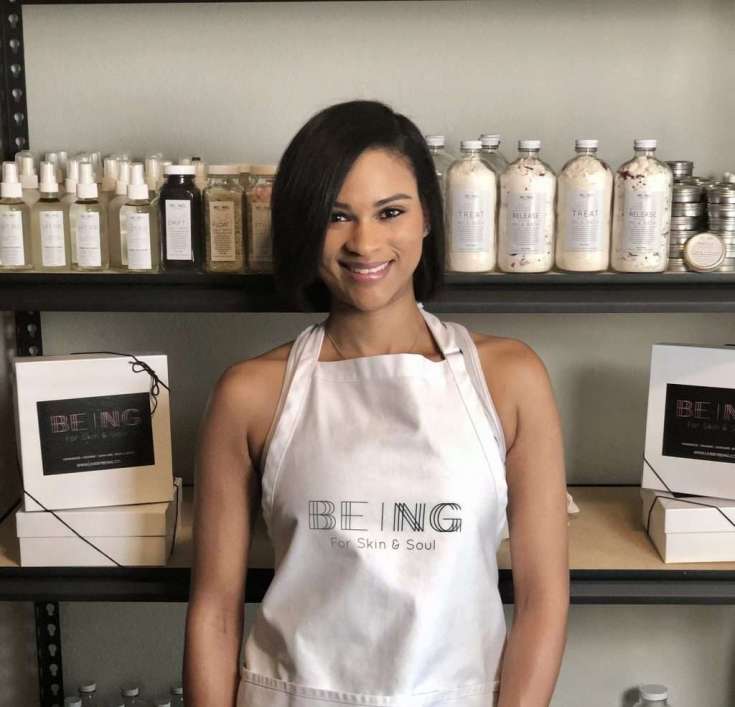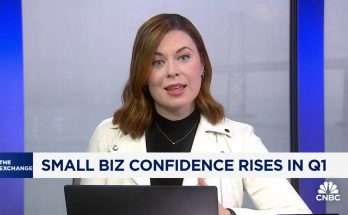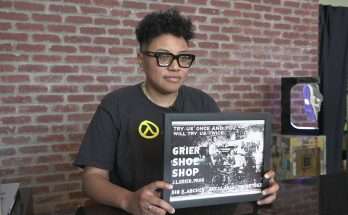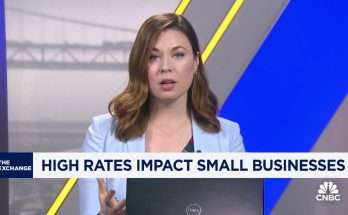
Amazon’s annual two-day Prime Day sales event kicks off on Tuesday, Oct. 13 after the coronavirus pandemic delayed the event for months.
For the more than 1.7 million small- and medium-sized businesses around the world that sell their products on Amazon, the massive annual shopping event could help provide a boost in a year that’s been racked with uncertainty as a result of Covid-19.
Prime Day, which dates back to 2015 and typically runs in mid-July, begins at midnight on Tuesday and runs through Oct. 14. During that time, the e-commerce giant could generate nearly $10 billion in global sales, according to an estimate from research company eMarketer.
Amazon doesn’t release specific revenue numbers around its Prime Day events, but the company said it sold more than 175 million items during last year’s Prime Day.
For the small businesses who sell their products on Amazon as third-party vendors, Prime Day could offer them a chance to boost sales after so many retail shops have suffered significant drops in business amid closures and other obstacles brought on by the past several months of the pandemic.
Houston-based entrepreneur Kennedy Lowery has been selling artisanal skincare products on Amazon since 2019 through her company, Live By Being. Roughly 60% of her business comes from selling those handmade products, such as bath salts and lip balms, on Amazon’s Handmade Marketplace.
Lowery, whose products range in price from $12 for a milk bath to $54 for a bath salt gift set and are all handmade by herself and a team of four employees in her Houston studio, tells CNBC Make It that restrictions stemming from coronavirus shutdowns in Texas earlier this year meant that “everything just kind of came to a halt” as she had to close her studio as a non-essential business throughout April and May while furloughing part of her team.
Now, after watching her sales dip by as much as 50% while her studio was closed earlier this year, Lowery is hoping to see a significant sales boost during Prime Day, when she plans to offer a 20% discount on her best-selling items. That discount is comparable to past promotions she’s offered, Lowery says, but it will apply to a wider range of products for this Prime Day than it has in the past.
“I’m pretty comfortable that it’ll be at least double in sales,” Lowery says. In fact, she prepared and sent enough inventory to Amazon’s fulfillment centers to anticipate as much as tripling her sales compared to a typical period.
When she’s been able to keep her studio open, though, Lowery says her business has actually been stronger overall in 2020, in spite of the pandemic. She expects to bring in “at least 30% more in revenue this year,” Lowery says, mainly because the pandemic has forced many shoppers to make more of their purchases online and that’s been a major boon for e-commerce retailers such as herself.
For Lowery’s business, the fact that Prime Day was pushed back due to the coronavirus has also ended up working in her favor. Because Live By Being’s studio was shut down through May, Lower says she “may not have been able to participate” in Prime Day had it taken place in mid-July, as originally scheduled, because she would likely not have had enough time to produce enough handmade products to fully take advantage of the shopping event.
Having an additional three months to prepare for Prime Day has also helped Lowery’s business overcome some of the supply chain issues that popped up in recent months as a result of the pandemic.
“The majority of my ingredients for all of my products come from American businesses and they had to close their doors as well [due to Covid-19],” Lowery says. Many of her suppliers also make ingredients used in essential products, like hand sanitizer, which obviously took precedence over other orders.
“It meant that an ingredient that may take two weeks … to get to me is now taking three to four weeks, or it’s just on hold until they can actually ship it out again,” she says.
Of course, not all third-party sellers on Amazon are happy about the delayed timing of Prime Day. CNBC reported on Thursday that some small businesses are complaining that they were not given enough time to prepare for this year’s Prime Day event, and they’ll be offering fewer promotions as a result.
Colleen Sundlie is The Date Lady.
Source: Colleen Sundlie
For Colleen Sundlie, aka The Date Lady, the leadup to this year’s Prime Day has also seen some bumps in the road because of Covid-related supply chain issues. Sundlie’s Springfield, Missouri-based small business, called The Date Lady, sells syrup and other sauces made from dates on Amazon.
Unfortunately, Sundlie’s company will be unable to sell their top-selling item, a $12.99, 24-ounce squeeze bottle of date syrup, during Prime Day because the manufacturer of the plastic bottles has had its own operation upended by the increased need for bottles of hand sanitizer.
“We are going to be without our best-selling size [bottle] on Prime Day, which is a disaster,” Sundlie says with a chuckle. To make up for that product’s absence, The Date Lady will be offering more discounts than usual, including a “Lightning Deal” promotional discount on its typically $21.99, 48-ounce bottles of date syrup in the hopes that product will prove just as popular. (The 48-ounce bottles will sell for $17.59 for Prime Day, Sundlie says.)
Even with that hiccup, though, Prime Day could mean “double our regular sales” for those two days compared to a typical day of business, Sundlie tells CNBC Make It.
Sundlie’s company has been selling products on Amazon for three years and she estimates that between 35% to 40% of her company’s business now comes from selling products online through Amazon, with the rest coming from distribution in grocery and specialty stores across the country.
Unavoidable supply chain issues aside, Sundlie says her company’s focus in the leadup to Prime Day has been on sending enough products to Amazon’s fulfillment center to make sure they can keep up with demand.
“One of the biggest failures on Amazon is not having enough inventory,” Sundlie says. “So, we learned that lesson long ago and we’ve been stocking for months now to prepare.”
However, she also notes that it has been “tricky” to stockpile inventory after Amazon put restrictions in place limiting the quantity of goods that third-party vendors could send to its warehouses amid the Covid-19 pandemic back in July. But sellers reportedly still have enough storage for up to three months-worth of inventory.
Still, Brandon Fishman, CEO of VitaCup, agrees that it’s always best to be prepared to ensure success selling on Amazon, whether it’s Prime Day or not. Fishman’s company, which sells vitamin-infused coffees and teas (with prices that start around $12 for a box of 14 tea bags or $25 for a box of 16 coffee pods) on Amazon as well as in retail stores, always makes sure to have three months-worth of inventory on hand with Amazon’s fulfillment center to avoid selling out, he tells CNBC Make It.
VitaCup, which was founded in 2017 and started selling products on Amazon that same year, now does about 30% of its business through the e-commerce giant. Thanks to the surge in online sales this year, Fishman adds that VitaCup’s Amazon business has increased its revenue by 38% already in 2020. And he expects those figures to improve with Prime Day.
“Usually, we see about a 400% to 500% increase [in sales for Prime Day] and I think it could be even more this year,” says Fishman. He feels that this year’s later start date for Prime Day could benefit VitaCup because the company’s sales typically improve as the weather turns colder.
To prepare for this year’s Prime Day, Fishman says that VitaCup is actively promoting the discounts the company will offer during the two-day event. As the company has for past Prime Day events, VitaCup will be offering all of its products at 30% off for this year’s Prime Day, which Fishman says is the biggest discount the company will offer on Amazon all year.
“We basically increase our budget by about 500% for those two days,” Fishman says of VitaCup’s Prime Day marketing blitz. “We run a lot of extra display ads, a lot of extra search ads, a lot of extra video ads.”
Of course, while Prime Day promotions can draw in more shoppers, steep discounts also cut into a business’ bottom line, especially with Amazon taking a cut of third-party vendors’ sales (referral fees are between 8% and 15%, plus fulfillment fees for shipping).
According to Fishman, the allure of Prime Day deals for business-owners is more about increased exposure than turning a tidy profit during the event.
“It’s not a day that you make money. It’s a day that you acquire customers and build your user base,” he says. Fishman notes that 56% of shoppers who buy VitaCup products on Amazon become repeat customers, which makes Prime Day deals an exercise in forward-thinking.
“For us, with a 56% repeat rate, if we can go get 5,000 new customers that day, then that helps our revenue for the next year,” he says.
Sundlie agrees, noting that her company’s date-based products are still “very niche” items and that it helps The Date Lady to get exposure to as many potential new customers as possible.
“We look at Prime Day as an investment in marketing,” she says. “And for Amazon to offer the potential to get in front of more people on what is one of the world’s largest platforms is invaluable. So we look at it as, even if we are barely a little above break-even, it’s totally worth it.”
This year, amid the ongoing economic uncertainty caused by the pandemic, Amazon is even doing a little bit extra to boost small businesses operating on the company’s platform. In September, Amazon announced it was encouraging shoppers to spend money with small businesses by offering a $10 credit to be used during the Prime Day event to any Amazon shoppers who spend $10 on items sold by certain small businesses on Amazon through Oct. 12.
“In the midst of an unprecedented year, we’re committed to making this the most successful Prime Day ever for our small businesses and excited for Prime members worldwide to discover new ways to support local entrepreneurs and save big on everything they need and love,” Jeff Wilke, the CEO of Amazon’s worldwide consumer business, said in a statement.
Sundlie tells CNBC Make It that sales for The Date Lady have “definitely” picked up recently, likely as a result of the Amazon promotion. Without her company’s top-selling product, she says, sales of other items highlighted by Amazon have increased, such as date-based barbecue sauce and chocolate spread.
“It really helped to carry us through a rough spot when we’ve been missing our top seller,” Sundlie says.
However, not everyone says they’ve seen a major uptick in sales from the $10 credit. Kip Gillenwater’s children’s toy business, Cathedral City, California-based 3 Bees and Me, sees roughly 95% of its sales on Amazon already, she tells CNBC Make It.
3 Bees and Me, which sells toys ranging from roughly $13 to $25, typically offers discounts on “a few products” for Prime Day. But Gillenwater tells CNBC Make It that, this year, her business will offer discounts on all products for the event.
“We have not really seen that much of a boost,” Gillenwater says of her business’ sales in the leadup to Prime Day. Still, she’s expecting a significant bump in sales during the Prime Day event itself.
“We normally see a three- to four-times increase in sales compared to a normal day,” Gillenwater says, adding that she expects to at least see that sort of sales bump for this year’s Prime Day, if not better.
With Prime Day falling in October this year, the delays pushed the event closer to the holiday season when 3 Bees and Me’s toys are in high demand.
“I think, actually, it’s going to be a better year than normal,” says Gillenwater, who predicts that this year’s Prime Day event could “kick off the Christmas shopping season.”
Check out: The 6 best credit cards for shopping at Costco
Don’t Miss:
Don’t make these 6 common mistakes and do Amazon Prime Day right


